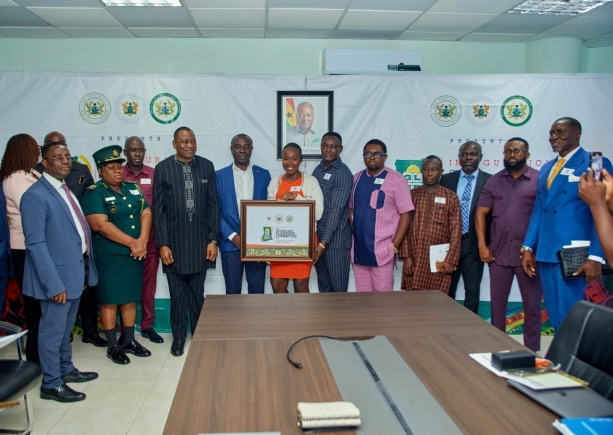
Ghana inaugurates national committee to advance labour export
Ghana has officially inaugurated the National Planning Committee for the Ghana Labour Exchange Programme (GLEP), a major step in operationalising President John Dramani Mahama’s vision of structured labour export and global workforce development.
The inauguration, held at the Presidential Annex in Accra under the theme “Designing Ghana’s Global Workforce Strategy,” brought together key stakeholders, including government officials, diplomats, labour experts, and representatives from civil society. The event underscored a national commitment to positioning Ghana as a reputable source of ethical, professional, and skilled labour for international markets.
The initiative, spearheaded by the Ministry of Employment and Labour Relations and led by sector minister Dr Abdul-Rashid Hassan Pelpuo, is designed to respond to global labour shortages while offering Ghanaian youth structured pathways to secure employment abroad.
“There is a global labour shortage,” President Mahama stated in a message reaffirming his administration’s commitment to job creation through international partnerships. “We must seize the moment to export skilled Ghanaian professionals through structured partnerships that guarantee dignity, knowledge exchange, and national reinvestment.”
Dr Pelpuo, who formally inaugurated the committee, described the GLEP as a “strategic opportunity” for Ghana to export talent responsibly while enhancing national development. He called on members of the committee to act with urgency and dedication.
“This initiative aligns with Ghana’s ambition to participate meaningfully in the global workforce,” he said. “Our youth must be given structured and dignified opportunities to contribute their skills abroad while gaining experience that will benefit the country upon their return.”
The National Planning Committee will be responsible for developing a robust institutional and policy framework for the programme. This includes establishing bilateral labour agreements, skills development strategies, and reintegration systems to support returning workers.
The GLEP also aims to establish safeguards for Ghanaian workers abroad, ensuring their welfare and labour rights are protected under internationally recognised standards. Stakeholders hope that this model of ethical labour export will not only reduce unemployment at home but also bring remittances, technical skills, and international exposure to Ghana’s economy.
As a key feature of President Mahama’s broader employment and development agenda, the programme is expected to benefit thousands of young professionals, especially in sectors like healthcare, construction, agriculture, and hospitality.
